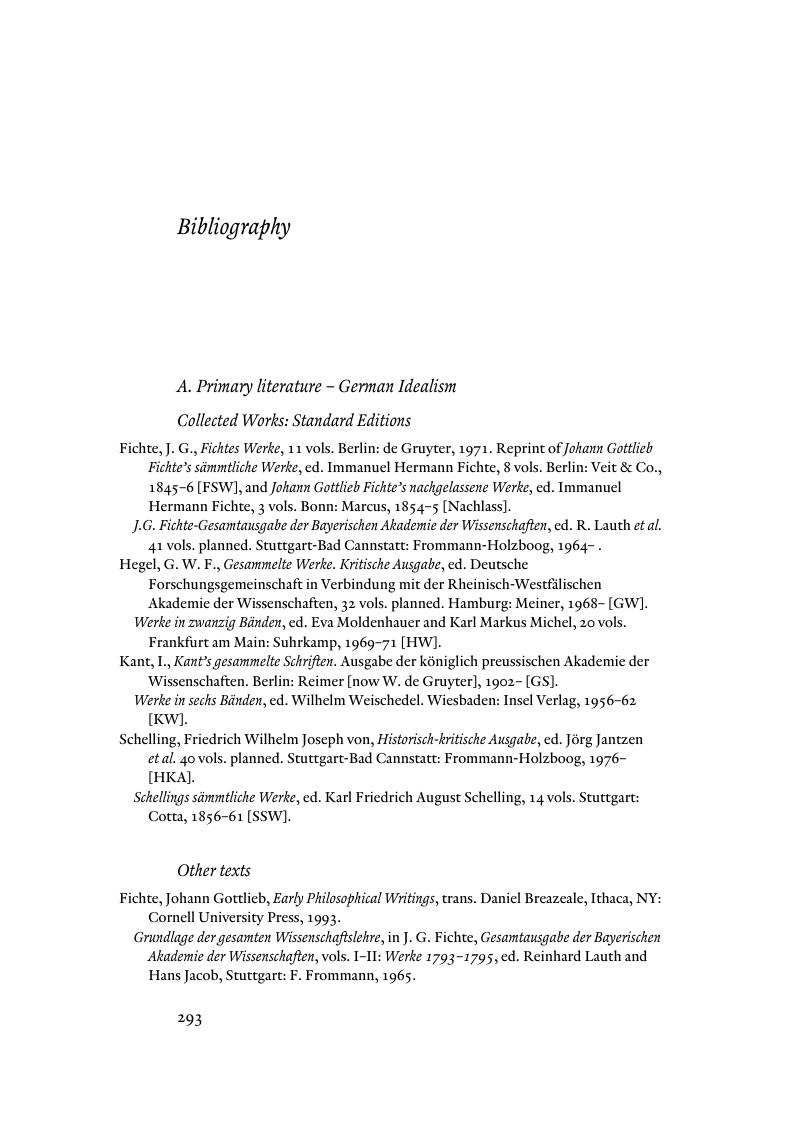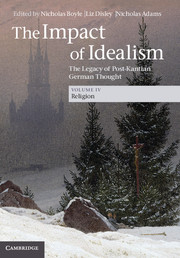Book contents
- Frontmatter
- Contents
- List of Contributors
- Acknowledgements
- List of Abbreviations
- Introduction: the impact of Idealism on religion
- 1 The impact of Idealism on Christology: from Hegel to Tillich
- 2 German Idealism's Trinitarian legacy: the nineteenth century
- 3 German Idealism's Trinitarian legacy: the twentieth century
- 4 Kierkegaard, Hegelianism and the theology of the paradox
- 5 Biblical hermeneutics: from Kant to Gadamer
- 6 Aesthetic Idealism and its relation to theological formation: reception and critique
- 7 The autonomy of theology and the impact of Idealism: from Hegel to radical orthodoxy
- 8 Faith and reason
- 9 Rabbinic Idealism and Kabbalistic realism: Jewish dimensions of Idealism and Idealist dimensions of Judaism
- 10 ‘In the arms of gods’: Schelling, Hegel and the problem of mythology
- 11 Dialectic and analogy: a theological legacy
- Bibliography
- Index
- References
Bibliography
Published online by Cambridge University Press: 05 December 2013
- Frontmatter
- Contents
- List of Contributors
- Acknowledgements
- List of Abbreviations
- Introduction: the impact of Idealism on religion
- 1 The impact of Idealism on Christology: from Hegel to Tillich
- 2 German Idealism's Trinitarian legacy: the nineteenth century
- 3 German Idealism's Trinitarian legacy: the twentieth century
- 4 Kierkegaard, Hegelianism and the theology of the paradox
- 5 Biblical hermeneutics: from Kant to Gadamer
- 6 Aesthetic Idealism and its relation to theological formation: reception and critique
- 7 The autonomy of theology and the impact of Idealism: from Hegel to radical orthodoxy
- 8 Faith and reason
- 9 Rabbinic Idealism and Kabbalistic realism: Jewish dimensions of Idealism and Idealist dimensions of Judaism
- 10 ‘In the arms of gods’: Schelling, Hegel and the problem of mythology
- 11 Dialectic and analogy: a theological legacy
- Bibliography
- Index
- References
Summary

- Type
- Chapter
- Information
- The Impact of IdealismThe Legacy of Post-Kantian German Thought, pp. 293 - 312Publisher: Cambridge University PressPrint publication year: 2013

